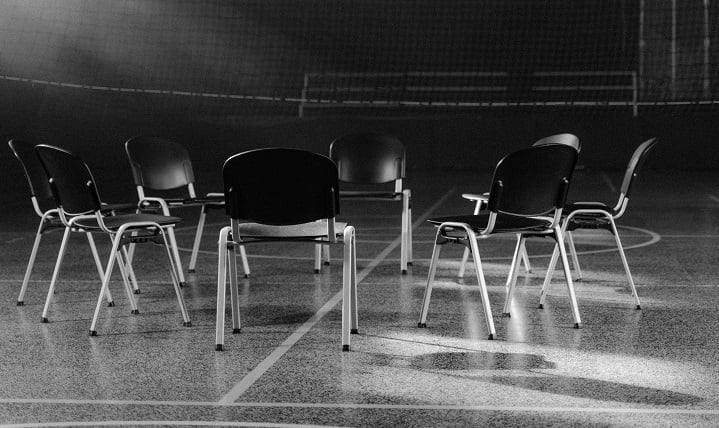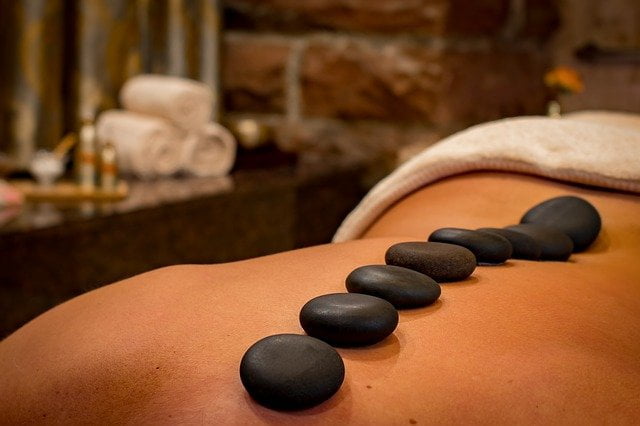Drug & Alcohol Rehab Exeter & Near Exeter
Quick links for drug and alcohol rehab in Exeter and near Exeter
- Dual diagnosis at drug anbd alcohol rehab in Exeter
- Do you meet the criteria to enter drug and alcohol rehab in Exeter?
- What other drug and alcohol addiction treatment services are there in Exeter?
- What happens during the admissions process at drug and alcohol rehab in Exeter?
- Hosting an intervention for drug and alcohol rehab in Exeter
- Your budget: can I afford drug and alcohol rehab in Exeter?
- How long will you stay at drug and alcohol rehab in Exeter?
- Relapse prevention planning at drug and alcohol rehab in Exeter
- Holistic treatments at drug and alcohol rehab in Exeter
- What should I expect from alcohol & drug rehab in Exeter?
Substance abuse and addiction are problems in Exeter just as they are in other parts of the UK. Alcohol rehab and drug rehab in Exeter are hugely important. In fact, the rate of crack and opiate use among adults in Exeter is the seventh highest in the UK.
However, it is not just crack and opiates that are causing problems in this part of the country; people in Exeter are also struggling with other addictions, including alcoholism and heroin addiction. Rehab is crucial for such addictions.
It is difficult to overcome addiction alone; most individuals need professional help to quit chemical substances, and it typically involves a rehab programme of detoxification to begin with.
To that end, there are many drug and alcohol detox clinics in, near Exeter and around Exeter from where these rehab services are available.
After detox, the process of learning how to live without mood-altering substances begins. This is known as rehabilitation, and it is probably the most important part of addiction recovery.
Getting sober is the first step, but unless this is followed up with various therapies at drug and alcohol rehab in Exeter, it is likely that relapse will occur.
The good news for those living in the Exeter area is that there are many free addiction services as well as private rehab clinics available, which means that everyone with addiction can access the treatments they need to get well again.
It was recently reported [1] that 3,247 people are alcohol-dependent in Exeter. This is an extremely concerning statistic, particularly when one considers the drastic impact alcohol addiction can have on both the quality and length of a person’s life. [2]
Alcohol addiction and rehab treatment is a serious concern in Devon and Exeter, and, unfortunately, addiction is not only negatively impacting the people who are addicted, but all those who love the person.
It takes a lot of psychological therapy to change these pathways and the associated thought patterns and behaviours. Rehab offers programmes where these treatments are central to recovery.
Get the help you need to overcome addiction from a drug and alcohol rehab Exeter by calling us today on 0800 088 66 86
Dual diagnosis at drug and alcohol rehab Exeter

People stood with their arms raised outside of a drug and alcohol rehab in Exeter
When people enter a drug and alcohol rehab in Exeter and near Exeter, they are assessed by a doctor (more on this later).
The assessment at drug and alcohol rehab in Exeter will highlight any mental health problems that might exist. If this occurs, a dual diagnosis will be given.
This simply means that a person has both an addiction and a mental health problem. Within the addiction field and at rehab, this is very common.
People entering rehab treatment for addiction might also have:
- Depression
- Anxiety
- Personality disorder
- Bipolar disorder
- Schizophrenia
- Trauma
- Psychosis
- Eating disorders
- Behavioural addictions such as gambling, shopping, or sex
- Post Traumatic Stress Disorder (PTSD)
- Obsessive Compulsive Disorder
- Borderline Personality Disorder
To discover how a drug and alcohol rehab Exeter will work to support your mental health, call us today on 0800 088 66 86
Do you meet the criteria to enter drug and alcohol rehab Exeter?

Woman with a cup of coffee looking at the sea
In order to be eligible for rehab treatment in Exeter [5], an addiction will usually need to be moderate to severe. The impact of addictive behaviours will negatively impact many areas of a person’s life.
If any of the following symptoms or circumstances are present, rehab will benefit the person:
- Trying to quit alcohol and drugs but being unable to do so.
- Having mental health problems.
- Experiencing suicidal thoughts and behaviours.
- Losing control of how you use drugs or alcohol.
- Using substances despite dangers.
- Becoming aggressive when taking drugs or alcohol.
- Participating in polysubstance use (taking more than one substance at a time).
- Experiencing delirium tremens or shaking when alcohol is leaving the body.
- Developing Wernicke’s encephalopathy [6].
You can call the Rehab Recovery team if you have questions about whether you meet this criteria.
Many other factors can make an individual more likely to suffer from addiction and be in need of rehab[10], ranging in everything from peer pressure [11] and a stressful lifestyle to genetics, early exposure to addiction and a history of traumatic events.
Unsure whether a drug and alcohol rehab Exeter is right for you? Call our team today on 0800 088 66 86
What other drug and alcohol rehab treatment services are there in Exeter?

Group therapy in progress at a drug and alcohol rehab in Exeter
Professionally supported [12] drug and alcohol rehab in Exeter is one of the best ways to recover from addiction, but it certainly isn’t for everyone.
As well as the 12 Step fellowship style meetings such as Alcoholics Anonymous and Narcotics Anonymous, there are the following options for alternative treatment to drug and alcohol rehab in Exeter:
- Home detox. This is under the supervision of a doctor who will have daily contact with the patient who will be at home. Prescription drugs will be provided to wean the person off a substance which has created a physical dependency.
- Outpatient rehab services such as group sessions, counselling or various types of holistic activities at either council-funded services or a private clinic.
- Organisations such as Al-Anon and AdFam offer support to families who are affected by a loved one’s addiction.
Whatever help you need to beat addiction – whether from a traditional alcohol and drug rehab in Exeter or one of these excellent alternative services – give our team a call today on 0800 088 66 86
What happens during the admissions process at drug and alcohol rehab in Exeter?

Therapist sat with a group of patients at a drug and alcohol rehab clinic in Exeter
When you enter rehab, you’ll go through a process including one or two assessments. This is so that staff understand the ins and outs of your addiction.
It will also reveal more about your personality, life, and what you want to achieve by entering rehab in Exeter.
The DSM-5 assessment at drug and alcohol rehab in Exeter
The DSM-5 assessment [13] is how doctors at rehab are able to find out how serious your addiction to drugs is. It takes into account a variety of factors that reveal details about how you use and what makes you use.
You’ll be asked questions in the following areas:
- Whether you use drugs despite negative consequences.
- If you’re able to still work and maintain responsibilities at home.
- Withdrawal symptoms.
- If you’ve tried to stop or reduce use and how that has gone.
The ASAM (American Society of Addiction Medicine) assessment at drug and alcohol rehab in Exeter
The ASAM assessment [14] provides a clear picture of different aspects of your life. Put all together, the psychiatrist at rehab will begin to understand how the addiction has developed.
They will also understand what treatments need to be included in your drug and alcohol rehab treatment programme in Exeter.
The assessment at rehab covers:
- Your physical health now and in the past.
- Your mental health [15] and responses.
- How relapse affects you.
- If you want to recover and what you’re willing to do to achieve that.
- Your life and environment.
- Your relationships.
The AUDIT (Alcohol Use Disorders Identification Test) assessment at drug and alcohol rehab in Exeter or near Exeter
A drug and alcohol rehab in Exeter will also assess for alcoholism. Many people with addictions to other substances use alcohol alongside them.
Alcohol use has a serious impact [16]. In 2018 and 2019, 358,000 people [17] were admitted to hospitals in the UK due to alcohol.
The AUDIT [18] reveals how you drink and the effects of this.
Questions include topics such as:
- What triggers you to drink.
- How much you drink each day [19] or week [20].
- The behavioural effects of drink.
- Whether alcohol use affects other areas of your life.
You can also use the CAGE Questionnaire [21], for more indication of whether you have an alcohol addiction.
Begin the admissions process at a drug and alcohol rehab in Exeter by calling us today on 0800 088 66 86
Hosting an intervention for drug and alcohol rehab in Exeter

Black and white photos of chairs set up for group therapy at a drug and alcohol rehab clinic in Exeter
Many families are affected by someone having an addiction to drugs or alcohol, often to a very significant degree.
It can be really hard to know the best way to support your loved one. Many addiction sufferers refuse to even acknowledge the existence of their addiction – the first and perhaps most important step [22] in recovery – and this can place a huge amount of pressure on their loved ones.
It is also very common for people with addictions to push boundaries and for loved ones to not know how to manage this. Often, these dynamics can lead to codependency.
It’s really important that families understand how to look after themselves. Family support groups can really help in this area.
However, there are interventions you can do at home as a family, following a set series of steps [23] to give you the best chance of successfully helping your loved one to pursue treatment.
CRAFT Intervention for drug and alcohol rehab in Exeter or near Exeter
The CRAFT intervention [24] provides a series of exercises you can use in order to positively influence the interaction and dynamics around the person who is addicted.
This approach has proven to successfully encourage many drug and alcohol users into rehab.
CRAFT can also help you become more aware of any enabling behaviour you may be imparting upon the addicted individual – this may be hard to see at first, but loved ones can often be a big influence on addiction given their position in the 4-P’s (Parents, Partner, Past and Present) [25].
Your budget: can I afford drug and alcohol rehab in Exeter?

Exterior photo of a drug and alcohol rehab clinic in Exeter
It’s useful to know the rehab options available in terms of finances so you know what’s open to you. Here is the general guideline.
For the most common length of stay which is 28 days there are two options:
- A multi-occupancy room which costs in the region of £6,000.
- A room to yourself which comes in around £8,000-£12,000.
Other people will enter rehab for a 10-day detox. This is to wean off a substance that has created a physical dependency, such as alcohol.
The options are:
- A shared bedroom with other residents is £2,000-£4,000.
- A single-occupancy room is around £3,000-£6,000.
Some people might opt for a home detox. This has to be approved by and overseen by a doctor to ensure the patient can safely manage a detox.
The doctor will be in daily contact and prescribe appropriate medications. This medically supervised alcohol or drug detox costs around £1,500.
For instance, some private clinics in Exeter might offer outpatient rehab services which for some might be easier to budget for.
If you’re interested in a drug and alcohol rehab in Exeter, you can also call Rehab Recovery for more information about the cost.
What happens during alcohol detox in or near Exeter?

Woman meditating at a drug and alcohol rehab clinic in Exeter
When people experience alcohol withdrawal symptoms, they are likely to face:
- Symptoms related to depression and anxiety
- Sleep disturbances and insomnia
- Shaking and sweating
- Delirium tremens
- Paranoia and hallucinations
- Seizures
- hepatitis
Seizures caused by alcohol withdrawal syndrome can be fatal, particularly if an addiction is severe, if there are other health conditions at play, or if the addiction sufferer is older. [26]
This is why it’s essential for those who have an alcohol dependency to access an alcohol detox under medical supervision, and not just quit cold turkey. [27]
At rehab, these last 7-10 days and patients are given the prescription drug Librium or Chlordiazepoxide in order to manage the symptoms. They may also be given Acamprosate [28] or Naltrexone [29] depending on their needs, as well as anti-anxiety medications [30] and anti-depressants [31] if necessary.
If people are entering rehab for alcohol detox, they’re usually recommended to stay for another 2-3 weeks.
This additional time provides the space for psychotherapies and holistic approaches to take place. The psychological aspect of addiction is really important to address in order for recovery to last.
Start your recovery journey today at a drug and alcohol rehab in Exeter by calling our expert team on 0800 088 66 86
How long will you stay at drug and alcohol rehab in Exeter?

Photo of a living room in a residential drug and alcohol rehab clinic in Exeter
Although recovering from addiction can take anywhere from six months to five years [32] on average, rehab will rarely be as along as this.
As just mentioned, people might stay for 10 days for a detox. The vast majority of residents, though, stay for 28 days.
This allows the time for a total approach to recovery to take place. Addiction comes in layers; personal, physical, familial, social, and spiritual.
All areas need to be addressed. It takes time.
Those who have mental health issues might stay an additional week or two where necessary.
Cannabis rehab in Exeter or near Exeter

Woman taking notes outside at a drug and alcohol rehab in Exeter
Entering a drug and alcohol rehab in Exeter when you’re addicted to cannabis offers the best start to recovery. Therapists work with you to understand how the addictive behaviours came about.
Together you work out how cannabis is affecting your mental health. You’ll consider symptoms linked to depression, anxiety, and psychosis which are all linked to cannabis use.
There will be time to consider how it affects your life goals and motivation [33].
Together with the rehab staff, you’ll start to create goals that you want to achieve in life. You’ll have therapies that support you to make positive decisions around drug use.
Cannabis detox is not necessary, as cannabis is not physically addictive.
Overcome your cannabis addiction with the help of a rehab clinic in Exeter – call us today on 0800 088 66 86
Cocaine rehab in Exeter

Black and white photo of a therapy group hugging at a drug and alcohol rehab clinic in Exeter
Thousands of people enter treatment for cocaine use. Interestingly, it’s often a drug that slides into life through recreational use with friends but can quickly become a habit a person does alone.
Where it might have been used on a night out with friends in the past, it’s become a daily problem.
Looking back at the way use has changed can be very revealing and this along with the causes of addiction are often pulled apart in therapy.
Cocaine and crack cocaine have serious effects on the cardiovascular and respiratory systems, as well as on the organs. Prolonged use increases the risk of illnesses and diseases as the immune system weakens.
Therapies at a rehab focus heavily on changing thoughts. Cognitive behavioural therapy and motivational interviewing are especially helpful.
Cocaine detox is not necessary as, like cannabis, cocaine is not physically addictive.
Overcome your cocaine addiction with the help of a rehab clinic in Exeter – call us today on 0800 088 66 86
Heroin rehab in Exeter

Inpatients sharing a fist-bump at a drug and alcohol rehab clinic in Exeter
When people have heroin addictions, they have to face both a physical and psychological withdrawal period. A stay at a drug rehab centre is really beneficial as it offers all the tools required to make this as easy as possible.
Upon entering rehab, the person will begin a physical heroin detox. A medical team will oversee this to ensure the person is safe. Subutex is likely to be administered to keep distressing symptoms to a minimum. Heroin withdrawal will need a medically-assisted detox.
After detox is completed (it take up to 10 days), then various therapies begin. These will combine evidence-based psychotherapies, alternative therapies, and relaxed activities such as yoga and equine therapy.
Where necessary, couple and family therapy might be included. This can help improve dynamics in the family going forward.
At Rehab, you can be treated for a range of addictions including:
- Substance Use Disorder
- Opioid Use Disorder
- Cocaine Dependence
- Gambling Addiction
- Ketamine Addiction
- Cannabis Use Disorder
- Alcohol Addiction and heavy drinking [34]
- Benzodiazepine Addiction
- Buprenorphine Addiction
- Physical Dependence
Overcome your heroin addiction with the help of a rehab clinic in Exeter – call us today on 0800 088 66 86
Relapse prevention planning at drug and alcohol rehab in Exeter

Photo of trees and flowers
Addiction is not considered a ‘choice’ or ‘moral failing’ on behalf of the addiction sufferer – it is a disease that needs to be treated, so the focus of addiction treatment is always on returning agency to the patient.
Part of this agency is preparing the individual to avoid relapse, which sadly is a very common danger [35] for addiction sufferers, as addiction itself cannot be fully cured [36].
As part of the aftercare plan at your chosen drug and alcohol rehab in Exeter, there will be a relapse prevention plan.
This will include what to do when you crave drugs or alcohol. The majority of people will be introduced to the HALT approach.
This is where when you feel yourself tempted to use, you stop and ask yourself what has triggered the feeling.
You self-reflect and identify whether you feel “hungry” (emotionally), angry, lonely, or tired. These human states commonly cause people to turn to additive substances like drugs and alcohol.
You will have come up with a plan for each state as to what to do in those moments.
The plan might outline a series of actions to take to manage the craving. For instance, this might include calling a friend, going to a 12-step group or yoga class, or journaling.
Alcohol & drug rehab services in Exeter

Couple embracing after drug and alcohol rehab in Exeter
Exeter is home to a large number of addiction services, so you will find it easy to access both free and private services for your addiction. Those struggling with an addiction to alcohol can access Alcoholics Anonymous meetings across Exeter.
Meetings are held in various locations, with specialised services for specific demographics, including the LGBT+ community.
As well as AA meetings, there are a number of other fellowship support groups operating within the confines of Exeter.
This includes:
- Narcotics Anonymous
- Crystal Meth Anonymous
- Family Alcohol Support
- Cocaine Anonymous
Below we have listed some of these services in areas around Exeter.
Drug and alcohol rehabilitation options in Exeter

Woman receiving a hot-stone massage during holistic therapy at a drug and alcohol rehab clinic in Exeter
With so many free and private rehab services available in Exeter, those struggling with addiction have plenty of options.
Many people will avail of the free services, as fellowship support programmes using the 12-steps are extremely effective when it comes to overcoming this type of illness.
However, many others prefer to enrol in a programme of detox and rehabilitation [37] at one of the many private clinics operating in and around Exeter.
These facilities typically offer either inpatient or outpatient rehab programmes and are designed to give those with addiction greater choice when it comes to the type of care they want.
Inpatient programmes are intensive and require patients to stay in the clinic for about six to eight weeks. During this time, they will receive treatments from qualified counsellors, therapists, psychologists and psychiatrists.
Typical treatments [38] for addiction include:
- Individual therapy
- 12 Step work
- Cognitive Behavioural Therapy (CBT)
- Dialectical Behavioural Therapy (DBT)
- Group therapy
- Independent therapy
- Contingency management
- Motivational interviewing
- Motivational enhancement therapy
- Relapse prevention
- Brief Intervention
- Group Psychotherapy
- Drama Therapy
- Eye Movement Desensitization and Reprocessing
- Rational Emotive Behavior Therapy
- Person-Centered Care
- Motivational Therapy
- Acceptance and Commitment Therapy
Treatments like Cognitive Behavioural Therapy are extremely effective [39] at treating disorders such as alcohol addiction, displaying a relatively low rate of relapse [40] when completed fully. However, some individuals will find CBT less effective – particularly those with learning difficulties or personality disorders [41] – which is why there are so many different therapies and other forms of addiction treatment available.
Likewise, motivational therapies are often a key part of recovery, as the systems of self-acceptance and self-belief [42] they impart are often essential in ensuring a successful recovery.
Many patients like the idea of staying at the clinic for an extended period as this means they are away from the distractions of their everyday life.
They also like the fact that it gives them constant access to professional staff. Many experts agree that this approach works best for those with the most severe types of addiction.
Other options available include outpatient rehab treatment, and while the types of treatment provided for patients attending these programmes are similar to those offered in a residential rehab programme, they do take place over a longer period on a daycare basis.
Depending on the number of hours of therapy required each week, outpatient programmes can last for a number of months up to a year or more.
Experience any and all of these effective treatments at a rehab centre in Exeter by calling us on 0800 088 66 86
Holistic treatments at drug and alcohol rehab in Exeter

Two people holding a sapling at a drug and alcohol rehab centre in Exeter
While the basis of treatments at most rehab clinics in and around Exeter will revolve around addiction counselling and behavioural therapy, holistic treatments are also used to assist the recovery process [43].
Holistic rehab treatments are designed to accompany a professional treatment plan and often play a vital role in the physical and mental recovery of the patient.
Types of holistic treatments include:
- Acupuncture
- Aromatherapy
- Art therapy
- Equine therapy
- Journaling
- Massage
- Meditation
- Mindfulness
- Nutritional counselling
- Music therapy
- Yoga
Access the best holistic treatments at an alcohol and drug rehab in Exeter by calling us today on 0800 088 66 86
The aim of alcohol and drug rehabilitation programmes

People walking through a forest during outdoor therapy at a drug and alcohol rehab in Exeter
Addiction is a progressive illness that will continue to worsen without proper rehab treatment.
Common physical ailments [44] of those suffering from alcohol or drug addiction include:
- Heart conditions
- Blood pressure issues
- Liver disease [45] and cirrhosis [46]
- Organ failure [47]
- Cancer
- Digestive issues
- Brain damage [48]
- A weakened immune system
Many addiction sufferers also struggle with mental disorders [49] linked with their addiction, including:
- Depression
- Anxiety
- Borderline Personality Disorders (BPD) and Anti Social Personality Disorders (APD) [50]
- Schizophrenia
- Post-Traumatic Stress Disorder (PTSD)
- Attention Deficit Hyperactivity Disorder (ADHD)
Unfortunately, this disease is not like the common cold or a virus that will just pass by itself – it must be treated.
The aim of alcohol and drug rehabilitation programmes is to help those with addiction get better.
When the right help is sought from a professional rehab at the right time, many of the most severe physical consequences of addiction can be mitigated and, in some cases, even reversed [51].
While each drug & alcohol rehab facility will differ in its approach to the treatment of those with addiction, many will use similar treatments and all will have similar goals and aims.
Staff at rehab programmes within Exeter will work alongside the patient to help him or her break the cycle of addiction.
Patients will be encouraged to take responsibility for their own recovery, with staff willing to guide and support them throughout the process.
A team of professional staff will work alongside each other to ensure that every patient is given a tailored plan of care to suit their individual needs. In most instances, this plan of care will be designed to treat the person as a whole and not just his/her illness.
Regardless of whether the patient is attending an inpatient or outpatient programme in the Exeter area, he or she will be given the tools required to help with relapse prevention and skills development.
This is a crucial part of addiction recovery and can often be the difference between success and failure. It is not enough to just stop abusing alcohol or a particular drug – the rehab patient must learn how to live in the real world without returning to it.
The importance of alcohol and drug addiction treatment

Therapy group talking together at a drug and alcohol rehab clinic in Exeter
Addiction obviously affects the health of the individual, but it also affects the well-being of those around them as well as the wider community.
The primary cause of alcohol and drug-related deaths [52] in Exeter males was chronic drug or alcohol abuse, which highlights the need for effective addiction treatment.
Sadly, drug and alcohol abuse results in both physical and mental health problems, which puts an enormous strain on the NHS [53], significantly extending their waiting lists [54] for treatment as well as causing a lot of heartache for family members. But both alcoholism and drug addiction can be treated.
With effective addiction treatment, deaths from drugs and alcohol can be reduced. Nevertheless, one of the biggest problems facing those with addiction is knowing how to access the required programmes.
The good news is that Exeter has plenty of resources in terms of free and private addiction services, as highlighted in the paragraphs above.
Start your recovery journey today by calling our expert team on 0800 088 66 86
How addiction affects children and young people in Exeter

People jumping during a sunset
Sadly, substance abuse is not an issue that affects adults only; many children dabble with drugs and alcohol.
Experts are of the opinion that the younger they are exposed to drugs or alcohol, the more likely these individuals are to be affected by addiction in later life.
While most youngsters who try drugs or alcohol will never go on to develop a dependency, there are some for whom addiction becomes an issue in later life. Specialist rehab care is available within Exeter for young substance abusers.
Parental addiction also has a lasting impact on children and adolescents, and this is something that also requires some form of therapy.
In many instances, parents receiving treatment for drug or alcohol addiction will be offered family therapy sessions with other members of their family in a bid to help rebuild relationships and to allow the family unit to heal.
What should I expect from alcohol & drug rehab in Exeter?

Two people wrapped up at a drug and alcohol rehab clinic in Exeter
Every rehab clinic in Exeter will differ in terms of location, surroundings and facilities. Nonetheless, residential clinics will typically offer private en suite rooms for every patient. Some facilities do offer a combination of single and shared occupancy rooms.
Private clinics are generally decorated to a high standard to ensure that patients are completely comfortable during their stay.
There will be first-class amenities available for patients, which may include a gym, swimming pool, and sauna at some of these facilities. Activities are usually arranged for evenings and weekends to give patients the opportunity to relax and get to know each other.
In most private clinics, there will be shared spaces such as the dining room and television room, where patients can spend some time relaxing when not in treatment.
Start your recovery journey today by calling our expert team on 0800 088 66 86
Fears regarding drug and alcohol rehab in Exeter

Black and white photo of a couple at a drug and alcohol rehab centre in Exeter
It is natural to be nervous about attending a detox or rehabilitation programme, whether this is in Exeter or anywhere else in the UK or overseas. If you have never been to rehab before, you will not know what to expect.
To overcome this apprehension, we suggest getting in touch with the clinic you are considering beforehand and asking if it would be possible to visit before admission.
You will probably find that most rehab clinics are more than happy to accommodate this request and will arrange for you to have a tour of the facility. This should be enough to put your mind at ease before you begin your programme.
You can also normally get a lot of information from the rehab clinic’s website; many people will take the opportunity to visit the website to find out more about the service provided by the facility and to see some photographs of the clinic and its environs.
Others will do some research regarding reviews and testimonials from previous patients.
Aftercare after drug and alcohol rehab in Exeter

Outside photo of a rural drug and alcohol rehab in Exeter
Aftercare is a major part of drug and alcohol addiction rehab recovery. Most addiction sufferers need ongoing support in their recovery journey.
While residential rehab treatment programmes are highly effective when it comes to a concentrated approach to addiction recovery, patients generally require more support when the programme finishes in order to maintain their sobriety and develop a strong and stable recovery going forward.
Most rehab clinics provide aftercare support for twelve months after the patient leaves the clinic.
Other rehab clinics offer an aftercare programme that may include sober living houses, which will give the patient the opportunity to experience independent living while still having regular access to the care and support of the staff at the facility.
Sufficient aftercare support can be vital when it comes to avoiding addiction relapse when the rehab patient returns to the real world.
Experts have agreed [55] that abstinence is far more effective than harm reduction or moderation management [56], so a significant portion of a rehab patient’s aftercare will be focused on relapse prevention.
Match your stay at a rehab in Exeter with an equally effective aftercare plan by calling us today on 0800 088 66 86
Charities & alternatives to drug and alcohol rehab in Exeter

Therapy group taking notes together at a drug and alcohol rehab in Exeter
Alternatives to drug and alcohol rehab in Exeter include:
1. EDP Drug & Alcohol Services, near Exeter
Address: Basepoint Business Centre, Yeoford Way, Marsh Barton, Exeter EX2 8LB
Telephone: 08002 335 444
Website: http://www.edp.org.uk/
2. CoLab Exeter, near Exeter
Address: Unity House, 10 Cannon Street, Taunton, TA1 1SN
Telephone: 01392 202 055
Website: https://www.colabexeter.org.uk/
3. Drug and Alcohol Recovery Service – HMP Exeter
Address: HMP Exeter, 34 New North Road, Exeter, EX4 4EX
Telephone: 01392 415 650
Website: https://www.changegrowlive.org/drug-and-alcohol-recovery-service-hmp-exeter
Reach out to 12-Step programmes in Exeter like Cocaine Anonymous, Narcotics Anonymous (NA) and Alcoholics Anonymous (AA) for help maintaining your sobriety.
The NHS provides reliable and free information about drugs and alcohol.
SMART Recovery will help you to manage any relapse triggers, and provide you with plenty of tools and coping mechanisms to make peace with your thoughts and feelings as you navigate your life in recovery.
Al-Anon are another service open to you and to your friends and family.
Find mental health support with Rethink Mental Illness, Mind, Young Minds, Samaritans and Papyrus. You can also contact the NHS Foundation Trust, Change Grow Live and Alateen.
Help from Rehab Recovery

Person typing on a phone at rehab
The services Rehab Recovery can offer are available across Exeter, including in Clovelly, Dartmouth, Torquay, Kingsbridge, Totnes, Exmouth, Salcombe, Woolacombe, Appledore, Ilfracombe, Beer, Barnstaple, Tavistock, Sidmouth, Croyde, Teignmouth, Dawlish, Budleigh Salterton, Okehampton, Tiverton, Dittisham, Ashburton, Newton Abbot, Axminster, Seaton, Bigbury-on-Sea, Great Torrington, South Molton, Crediton, Branscombe, Bideford, Chagford, Braunton, Plymouth, Bovey Tracey, Combe Martin, Ottery Saint Mary, Cockington, Paignton, Hartland, Lustleigh, Cullompton, Moretonhampstead, Holsworthy, Westward Ho!, Chudleigh, Lee, Instow, Brixham, Ivybridge, and many more towns in and around Exeter.
All of the rehabs we recommend are regulated by the Care Quality Commission (England and Wales) or the Care Inspectorate (Scotland). We also follow guidelines by the National Institute for Health and Care Excellence.
At Rehab Recovery, we offer free advice from a team of non-judgemental professionals, many of whom are in recovery and understand how hard it can be to change your relationship with addiction.
For more information about rehab in Exeter, reach out to our 24/7, confidential hotline on 0800 088 66 86.
References for drug and alcohol rehab in Exeter
[2] https://www.ncbi.nlm.nih.gov/pmc/articles/PMC4402015/
[3] https://www.niaaa.nih.gov/publications/alcohol-and-brain-overview
[4] https://pubs.niaaa.nih.gov/publications/aa63/aa63.htm
[6] https://www.ncbi.nlm.nih.gov/books/NBK470344/
[7] https://www.ncbi.nlm.nih.gov/pmc/articles/PMC5328289/
[8/9] https://www.ncbi.nlm.nih.gov/pmc/articles/PMC6876531/
[10] https://nida.nih.gov/publications/drugfacts/understanding-drug-use-addiction
[11] https://medlineplus.gov/ency/article/001522.htm
[12] https://scholar.google.com/citations?hl=en&user=Ptx0xPkAAAAJ
[13] https://cdn.website-editor.net/30f11123991548a0af708722d458e476/files/uploaded/DSM%2520V.pdf
[14] https://www.asam.org/asam-criteria/about-the-asam-criteria
[15] https://pubs.niaaa.nih.gov/publications/arh26-2/90-98.htm
[16] https://www.apa.org/topics/substance-use-abuse-addiction/alcohol-disorders
[17] https://digital.nhs.uk/data-and-information/publications/statistical/statistics-on-alcohol/2020
[19] https://www.cdc.gov/alcohol/fact-sheets/alcohol-use.htm
[20] https://www.niaaa.nih.gov/alcohol-health/overview-alcohol-consumption/moderate-binge-drinking
[21] https://www.mdcalc.com/calc/1729/cage-questions-alcohol-use
[22] https://www.mountsinai.org/health-library/selfcare-instructions/deciding-to-quit-drinking-alcohol
[23] https://www.ahrq.gov/prevention/guidelines/tobacco/5steps.html
[24] https://www.verywellmind.com/the-craft-approach-to-substance-abuse-intervention-5191125
[26] https://www.niaaa.nih.gov/alcohols-effects-health/alcohol-topics/older-adults
[28] https://effectivehealthcare.ahrq.gov/products/alcohol-misuse-drug-therapy/consumer
[29] https://www.aafp.org/pubs/afp/issues/2016/0315/p457.html
[30] https://www.ncbi.nlm.nih.gov/pmc/articles/PMC5614930/
[31] https://agapetc.com/what-is-the-best-antidepressant-for-an-alcoholic
[32] https://www.racnj.com/the-five-stages-of-addiction-recovery/
[33] https://www.ncbi.nlm.nih.gov/pmc/articles/PMC6760428/
[34] https://www.nhs.uk/live-well/alcohol-advice/the-risks-of-drinking-too-much/
[35] https://www.newdirectionsforwomen.org/what-percentage-of-alcoholics-recover/
[36] https://nida.nih.gov/publications/drugs-brains-behavior-science-addiction/treatment-recovery
[38] https://www.ncbi.nlm.nih.gov/books/NBK385382/
[39] https://gpsych.bmj.com/content/32/5/e100087
[40] https://pubmed.ncbi.nlm.nih.gov/32954958/
[41] https://www.ncbi.nlm.nih.gov/pmc/articles/PMC7001356/
[43] https://nida.nih.gov/research-topics/recovery
[44] https://www.cdc.gov/alcohol/fact-sheets/alcohol-use.htm
[45] https://www.ncbi.nlm.nih.gov/pmc/articles/PMC3321494/
[47] https://www.niaaa.nih.gov/alcohols-effects-health/alcohols-effects-body
[48] https://www.niaaa.nih.gov/publications/alcohol-and-brain-overview
[49] https://www.niaaa.nih.gov/publications/brochures-and-fact-sheets/understanding-alcohol-use-disorder
[50] https://www.ncbi.nlm.nih.gov/pmc/articles/PMC6241194/
[52] https://www.ncbi.nlm.nih.gov/pmc/articles/PMC4402015/
[55] https://scholar.google.com/citations?hl=en&user=VHMpXXIAAAAJ
[56] https://www.health.harvard.edu/staying-healthy/12-ways-to-curb-your-drinking


